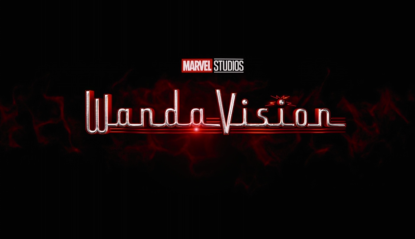“Wandavision” signals new divide in television storytelling
Emphasis on spectacle diminishes opportunity to evoke realistic, inspiring stories

March 18, 2021
This past year, Disney+’s Marvel has announced a wave of streaming series’ that will have lasting repercussions on the television industry. The release of “Wandavision” (2021) has signaled this new change. TV shows are now bringing in A-list actors and big-time blockbuster movie budgets, begging the question: — what kind of quality are execs aiming for? These improved capacities for special effects and straightforward storytelling have and will continue to put every other part of the industry in the backseat as TV becomes a means to entertain, and nothing else.
To provide a bit of context, television was initially meant to be the passive little brother to Hollywood. Families could escape awe and splendor for more frank shows such as “The Dick Van Dyke Show” (1961) or “The Addams Family” (1964). For the most part, TV kept this path for decades. Sixties television made sure that even the most general audience could understand what was going on and that they wouldn’t have to think too hard. It wasn’t until the era of paid subscription that you could start to see complex themes explored by showrunners in partnership with HBO.
“The Wire” (2002), “Oz” (1997) and “The Sopranos” (1999) are examples of television shows that decided to make it their goal to entertain the audience while also bringing in complex and layered storylines regarding drug addiction, prison reform and mental illness. Why the switch? Because once a subscription service gets involved, that means more money and more talented writers and actors to employ. As such, we start to see a shift towards a desire to tell real, human stories that critique our society while simultaneously providing hope. Unfortunately, in our generation, more money has also meant more opportunities for passivity and spectacle.
Critics might argue that Marvel is just the place for the merging of both spectacle and complex ideas, yet one would just need to look at Noah Hawley’s work to see that this isn’t the case. Hawley took a character from “Marvel”, David Haller, and created a show without the foundation of a comic storyline. Instead, he captured the character’s essence in an original, critically acclaimed hit show: “Legion” (2017).
In this show, not only is the powerful mutant side of Haller explored, but the show also investigates the side of the character that suffers from mental illness. Hawley uses superb writing and creative camera techniques that entertain the audience, allowing them to try and figure out what’s real and what is just part of Haller’s mind, without this information being spoon-fed to them. By doing this, the audience is encouraged to try and grasp what mental illness is and the cycle someone can go through trying to figure out if their disease is what defines them.
“Wandavision” missed this opportunity to tell a multifaceted story with its brilliant premise of a powerful witch with mind powers who has just undergone a traumatic event. Instead, the viewer is treated to quirky comedy and special effects that make excellent acting performances and an elaborate plot irrelevant. All the show had to do to disguise its two-dimensional storytelling was slip in a profundity about love.
From this, you get the essence of the TV industry’s divide through two Marvel properties, “Wandavision” and “Legion”. FX, “Legion”’s network, wanted to show their worth by telling different stories such as “Legion”, “American Horror Story” (2011), and “Fargo” (2014). FX was able to balance entertainment value and the responsibility to engage with the audience’s beliefs and mindset, something that was possible due to their basic cable setting. Now the era of subscription services has made it so that you just have to make enough content to make an audience’s 10 to 20 dollar monthly subscription worthwhile. Audiences are allowed to miss some episodes or skip to the big parts if they so choose because the streaming service will still get paid for their subscription.
There is a grim future ahead of us compared to when HBO began its programming in the 1990s, but that is not to say there is not great work being done by streaming services. HBO itself has continued to produce exceptional shows that take a deep dive into society’s inner workings in “Barry” (2018), “Succession” (2018) and “Watchmen” (2019). However, if an audience becomes too passive in the era of blockbuster television, then the proper art form of television will be swept under the rug.
As an audience, we need to ask more of our shows. We need to ask not to be spoon-fed plot points or simple ideas. We need to want shows that can explore the good and the bad of our society. If we can do that, we can make sure that TV remains one of the last art forms that can inspire true societal change.





















